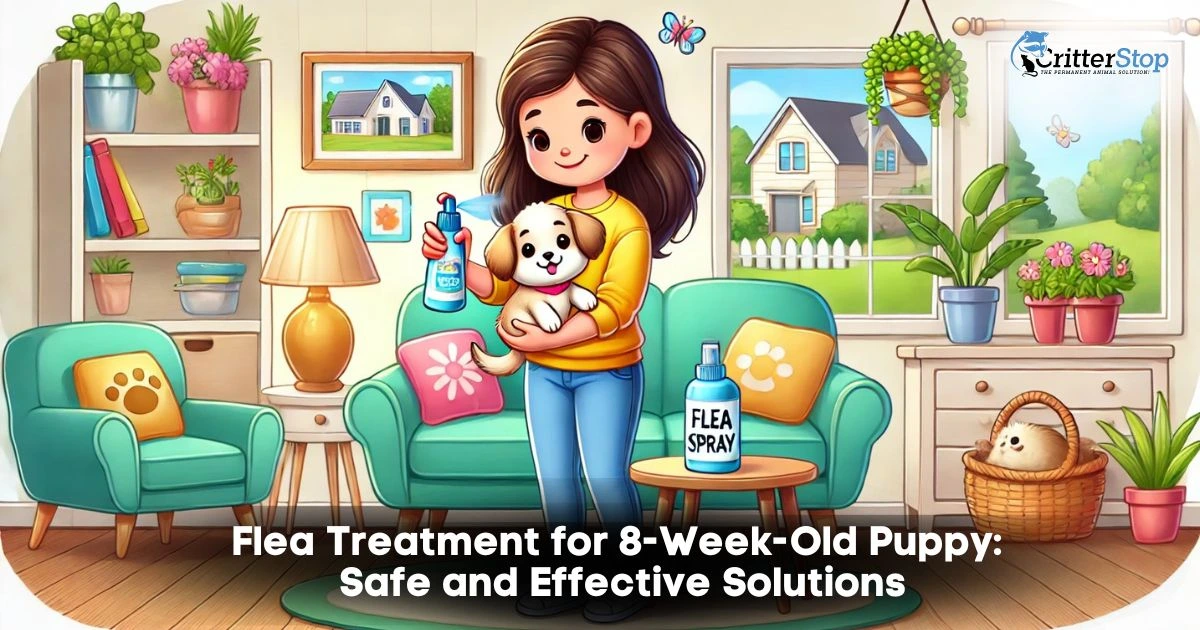
Fleas are more than just a nuisance; they can cause significant discomfort and health issues for your puppy. For an 8-week-old puppy, finding the right flea treatment is crucial because their delicate skin and developing immune systems require gentle yet effective solutions. This guide explores the best flea treatments for puppies, how to apply them safely, and preventative measures to ensure your furry friend stays flea-free.
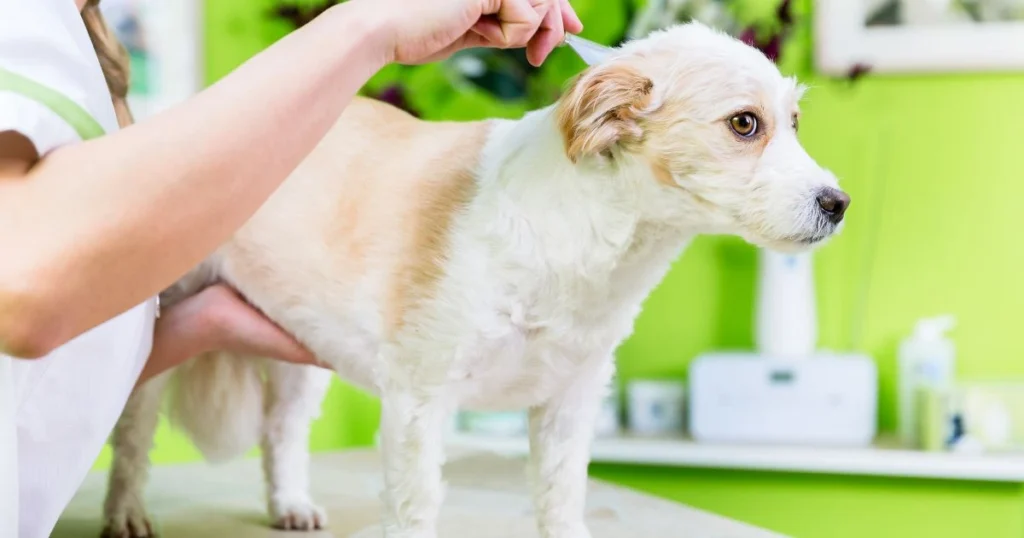
Fleas are tiny parasites that feed on your puppy’s blood, causing itching, irritation, and potential health complications such as anemia or allergic reactions. Puppies are particularly vulnerable due to their smaller size and weaker immune systems, making prompt and appropriate treatment essential.

Choosing a flea treatment for an 8-week-old puppy requires careful consideration of age, weight, and overall health. Here are the most commonly recommended options:
Flea shampoos are a gentle way to eliminate fleas on your puppy's coat. Many shampoos are formulated specifically for puppies and contain mild, non-toxic ingredients.
A flea comb is a simple, chemical-free tool to remove fleas from your puppy’s coat manually.
Topical flea treatments are applied directly to the skin and offer long-lasting protection. Ensure the product is labeled safe for 8-week-old puppies.
Certain oral flea medications are safe for puppies as young as 8 weeks, depending on their weight.
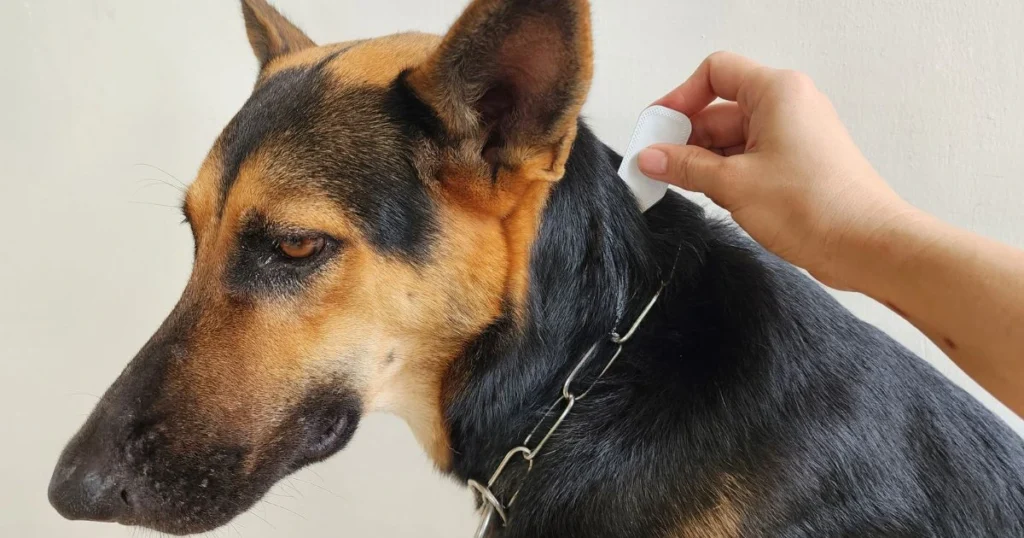
When using flea treatments on an 8-week-old puppy, safety is paramount. Follow these steps to ensure the treatment is effective and gentle on your pet:
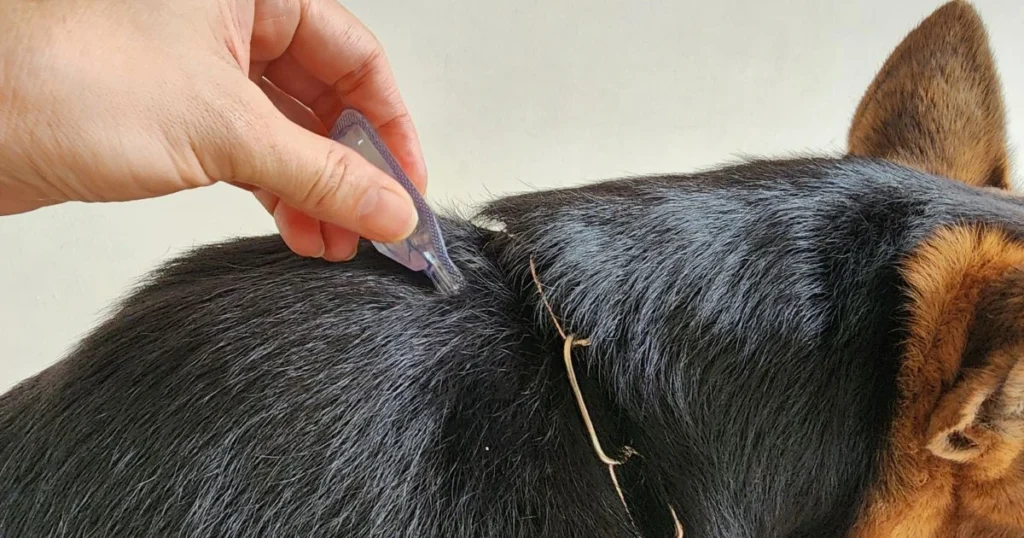
Prevention is key to keeping fleas away from your puppy and home. Implement these measures to maintain a flea-free environment:
Groom your puppy regularly with a flea comb to catch fleas before they multiply. Bathing your puppy with puppy-safe shampoo can also help keep its coat clean and healthy.
If you have other pets, treat them for fleas to prevent cross-infestation. Use age-appropriate products for each animal.
Talk to your vet about monthly preventative flea treatments to protect your puppy as it grows. Options include topical treatments, collars, and oral medications.
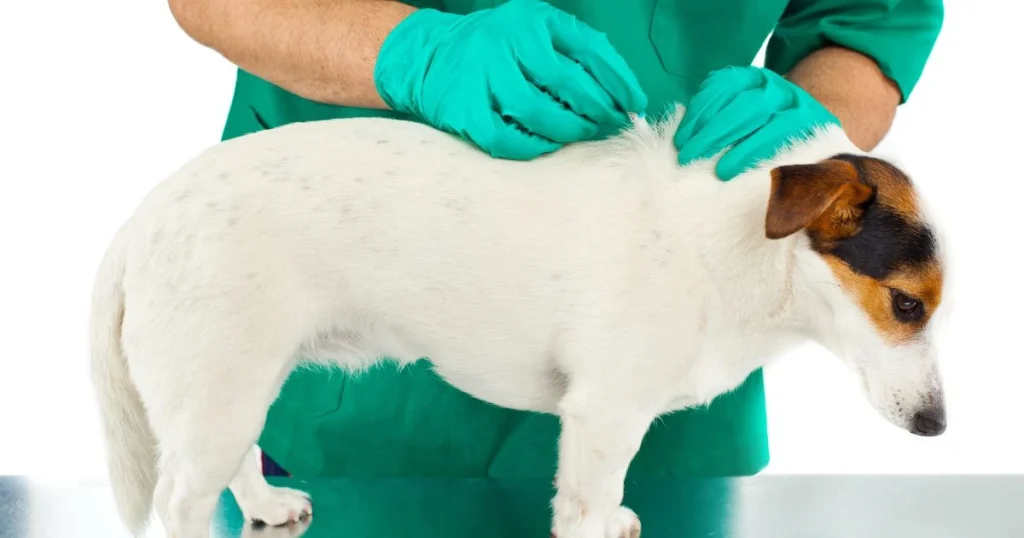
If your puppy has a severe flea infestation or shows signs of lethargy, pale gums, or excessive scratching, consult a veterinarian immediately. Your vet can recommend safe treatments and ensure your puppy recovers quickly.
Many flea treatments are specifically designed for puppies as young as 8 weeks. Always check the product label and consult your vet.
Even indoor puppies can get fleas, as these pests can travel on humans or other pets. Preventative measures are crucial regardless of your puppy's living situation.
Fleas have a lifecycle that includes eggs, larvae, and adults. Multiple treatments may be necessary to eliminate an infestation fully.
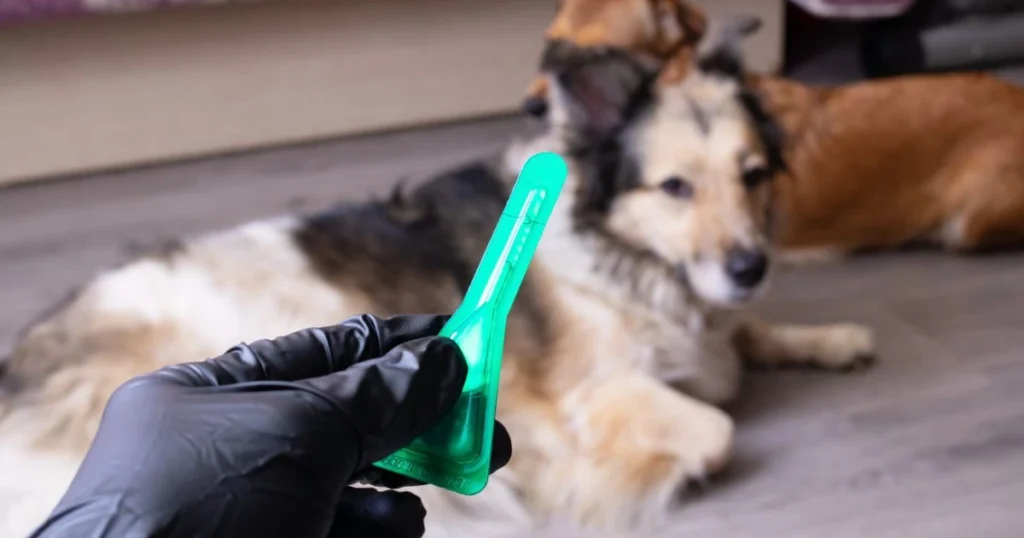
Fleas can create significant challenges for an 8-week-old puppy, but with the right treatments and preventative measures, you can safeguard your pet from discomfort and potential health risks. Options such as gentle shampoos, flea combing, topical solutions, and oral medications provide safe and effective ways to address infestations while keeping your puppy healthy. Always consult your veterinarian to ensure the treatment is tailored to your puppy’s age, weight, and specific needs.
Critter Stop offers professional and humane pest control solutions to keep your environment safe if fleas or other pests are recurring in your home or yard. Critter Stop has a fantastic reputation and glowing customer reviews for delivering high-quality work and exceptional service. Call Critter Stop at (214) 234-2616 today for a free consultation and let their experts help you address your flea and pest concerns effectively.
Fleas can cause serious discomfort and health risks for puppies, especially young ones. Ensuring that you use the right flea treatments and sprays designed for puppies is essential for their safety and well-being. This FAQ section addresses common concerns about flea treatment for 8-week-old puppies and offers detailed answers to help you protect your furry friend.
Flea treatments like Capstar (Nitenpyram) tablets, puppy-safe shampoos, and topical solutions like Frontline Plus for puppies are safe for 8-week-old puppies. Ensure the product is age-appropriate, and consult your veterinarian before starting any treatment. These treatments help remove existing fleas and prevent re-infestations.
Some flea and tick sprays are specifically formulated for puppies under 12 weeks. Check the product label to confirm its suitability for young puppies. Products like Vet’s Best Flea and Tick Spray are made with natural ingredients and are safe for delicate puppy skin, offering effective flea and tick protection.
For puppies under 12 weeks, flea spray should be applied according to the instructions on the product label. Most sprays recommend application every 7–10 days or as needed for active infestations. Regular use prevents fleas from returning, but avoid overapplication, which can irritate sensitive puppy skin.
The best flea treatment for an 8-week-old puppy depends on size and weight. Oral tablets like Capstar provide fast relief by killing fleas within hours. For long-term prevention, topical treatments such as Advantage II for puppies are effective, but always seek veterinary guidance before starting a treatment plan.
Many flea sprays designed for puppies under 12 weeks are safe for indoor use. Ensure that the spray is made from non-toxic ingredients and follow ventilation recommendations on the label. Indoor use helps eliminate fleas in the puppy's immediate environment, reducing the risk of re-infestation.
Choose flea treatments labeled specifically for puppies based on their weight and age. Look for products approved by veterinarians, such as shampoos, sprays, or oral medications. Avoid using flea treatments meant for adult dogs, as they may contain harsh chemicals unsuitable for young puppies.
Natural flea treatments, such as those using essential oils like cedarwood or lemongrass, can provide some relief for 8-week-old puppies. While safer for young pups, they are often less effective than vet-approved medications. Natural treatments should be used as a supplementary measure, not as the sole method of flea control.
Visit our Critter Library and learn more about our furry friends